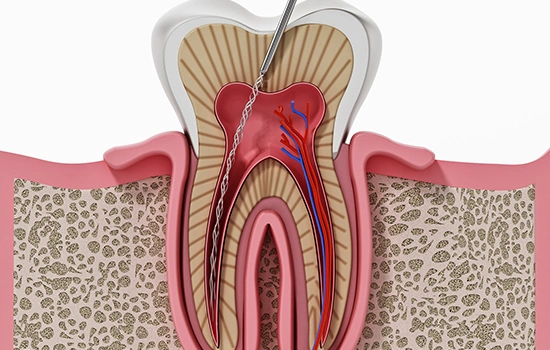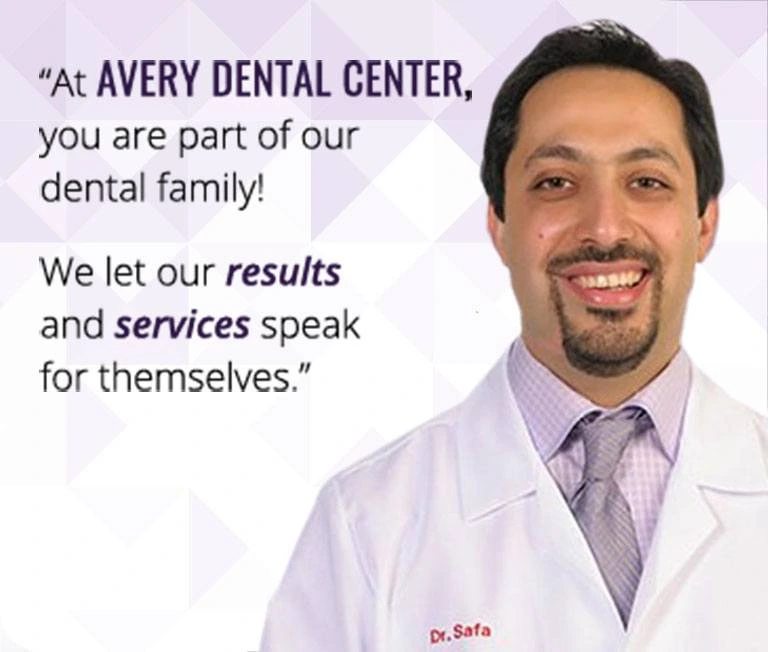A root canal is a common dental operation used to salvage a badly damaged or diseased tooth. While root canals have a high success rate, there can be instances where complications arise, including the occurrence of a cracked tooth after the root canal treatment. This article will explore the reasons behind cracked teeth post-root canal, the signs and symptoms to watch out for, professional diagnosis, and the available treatment options to save a cracked tooth.
What is a Root Canal?
Treatment Length
Invisalign
As short as 6 months, with an average of 12 to 18
Braces
Average of 12 to 24 or more, depending on the type and severity of malocclusion
Can treatment be expedited?
Invisalign
Wear aligners for 20+hours a day, keep teeth and aligners clean, visit the dentist regularly to monitor progress
Braces
Visit the clinic as directed for adjustments, keep teeth and brackets/wires clean and free of plaque, avoid habits that could increase treatment time
Cleaning
Invisalign
Use a soft-bristled toothbrush and non-abrasive toothpaste to gently scrub aligners
Braces
Use an interdental toothbrush and water flosser to remove plaque and bacteria from around brackets and wires
Maintenance
Invisalign
Keep teeth and aligners clean for best results
Braces
Keep teeth and brackets/wires clean for best results
Removable?
Invisalign
Yes, aligners are designed to be removed while eating/drinking and while brushing/flossing teeth
Braces
No, traditional braces cannot be removed until treatment is complete, and the dentist is the only one that should remove them
Visits to dental clinic
Invisalign
Periodically, you need to visit the dental clinic to monitor your progress
Braces
Yes, you will need to visit the clinic every few weeks as teeth shift for adjustments
How much does it cost?
Invisalign
Starts at approximately $1,500 for up to 5 aligners and goes up to around $8,000 for unlimited aligners
Braces
Costs an average of $3,000 to $5,000+, depending on several factors
Benefits
Invisalign
Virtually invisible
Comfortable
Convenient
Braces
Does not require compliance- once braces are attached, they are not removable except by the dentist upon completion of treatment
Ideal for
Invisalign
Mild to moderate malocclusions, can be used for more severe along with attachments, depending on the type of malocclusion
Braces
Mild to severe malocclusions
Before delving into the complexities of cracked teeth after root canals, it’s essential to understand what a root canal procedure entails. A root canal is a dental treatment aimed at removing the infected or damaged pulp from the interior of a tooth. This pulp houses the tooth’s nerves and blood vessels. The dentist cleans and disinfects the interior of the tooth, seals it, and generally inserts a crown to preserve and restore the tooth’s function throughout the process.
Signs and Symptoms
A cracked tooth after a root canal may exhibit various signs and symptoms, which can be concerning for the patient. These include:
- Persistent Pain: One of the most common indicators is persistent pain in the affected tooth. This pain can vary in intensity and may worsen when chewing or applying pressure on the tooth.
- Sensitivity to Temperature: Patients may experience increased sensitivity to hot or cold temperatures, even after the root canal treatment.
- Swelling and Discomfort: Swelling or discomfort around the treated tooth or the surrounding gums can also be a sign of a problem.
- Change in Tooth Color: A cracked tooth may appear discolored compared to the surrounding teeth.
- Visible Cracks: In some cases, a patient may notice visible cracks or fractures on the tooth’s surface.

Causes of Cracked Teeth After Root Canal
Several factors can lead to the formation of a broken tooth following a root canal.:
- Structural Weakness: A tooth that has had a root canal may become structurally weaker as a result of the removal of infected pulp, leaving it more vulnerable to fracture.
- Fractures: Pre-existing cracks or fractures in the tooth that were not identified before the root canal procedure can lead to post-treatment complications.
- Crown Issues: If the dental crown used to restore the tooth is not properly fitted or becomes damaged, it can contribute to tooth cracking.
- Bite Problems: Uneven pressure on the tooth during biting or grinding can lead to stress fractures over time.
Diagnosis and Professional Advice
If you suspect a cracked tooth after a root canal, it is crucial to seek professional dental evaluation. A dentist will analyze the condition of the tooth and the size of the fracture using various diagnostic methods such as X-rays and clinical tests. Based on their findings, they can guide the most appropriate course of action.
Treatment Options
The treatment choices for a fractured tooth following a root canal may differ based on the degree of the crack and the general condition of the tooth. Some possible approaches include:
- Crown Replacement: If the dental crown is the cause of the issue, replacing it with a properly fitted one may resolve the problem.
- Tooth Bonding: In cases of minor cracks, dental bonding can be used to seal and reinforce the tooth’s structure.
- Root Canal Retreatments: In some instances, a second root canal procedure may be necessary to address the issue if the initial treatment fails to seal the tooth properly.
- Extraction and Replacement: In severe cases where the tooth cannot be saved, extraction followed by dental implant placement or a bridge may be recommended to restore functionality.
Tips for Preventing Cracked Teeth Post Root Canal
Following these techniques will help you avoid fractured teeth after a root canal:
- Regular Check-ups: Maintain regular dental examinations to monitor the health of treated teeth.
- Avoiding Hard Foods: Steer clear of chewing on hard foods or ice, which can increase the risk of tooth fractures.
- Night Guards: If teeth grinding is an issue, consider using a night guard to protect your teeth during sleep.
- Proper Oral Hygiene: Maintain excellent oral hygiene practices to reduce the risk of reinfection or complications.
If you suspect a cracked tooth after a root canal or are experiencing any of the symptoms mentioned, it is crucial to consult a dentist promptly. Visit Avery Dental Center in Dublin, Oh for expert guidance and professional dental care. Don’t delay in seeking the right treatment to save your tooth.
FAQs
How much does repairing a broken root canal tooth cost?
The cost of restoring a fractured root canal tooth varies according to the amount of damage and the treatment technique chosen. I think it’s best to consult with a dentist for a personalized assessment and cost estimate.
How can I heal my tooth after a root canal?
Healing after a root canal typically involves following your dentist’s post-treatment instructions, maintaining good oral hygiene, and attending regular follow-up appointments to ensure the tooth heals properly.
Can tooth roots grow back after a root canal?
No, once the tooth’s pulp and nerves are removed during a root canal, the roots cannot grow back. The tooth is essentially dead but can still function with proper care.
Can Root Canal Treatment be done twice?
Yes, in some cases, a root canal treatment can be performed again if the initial treatment was unsuccessful or if a new issue arises. This is known as a root canal retreatment and can help save the tooth from extraction. Could you consult with a dentist to determine if retreatment is a viable option for your situation?











